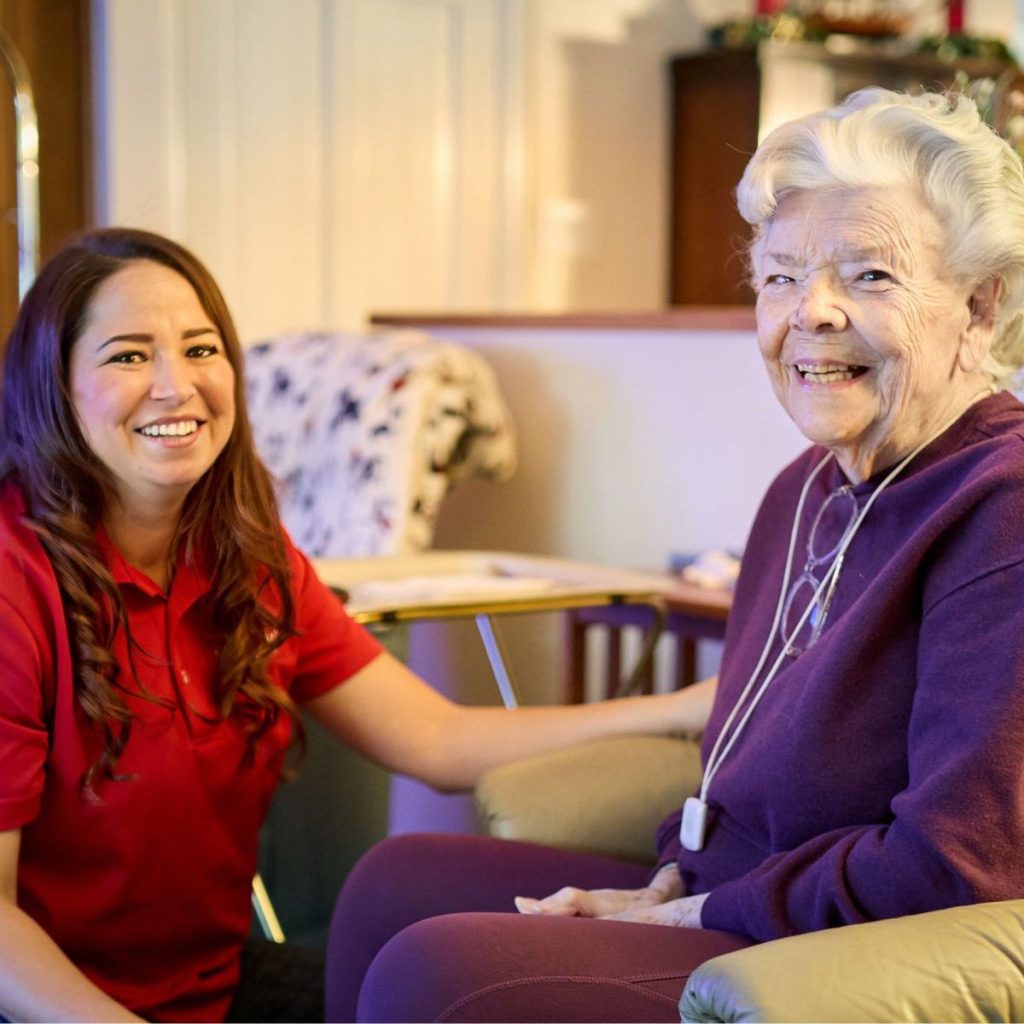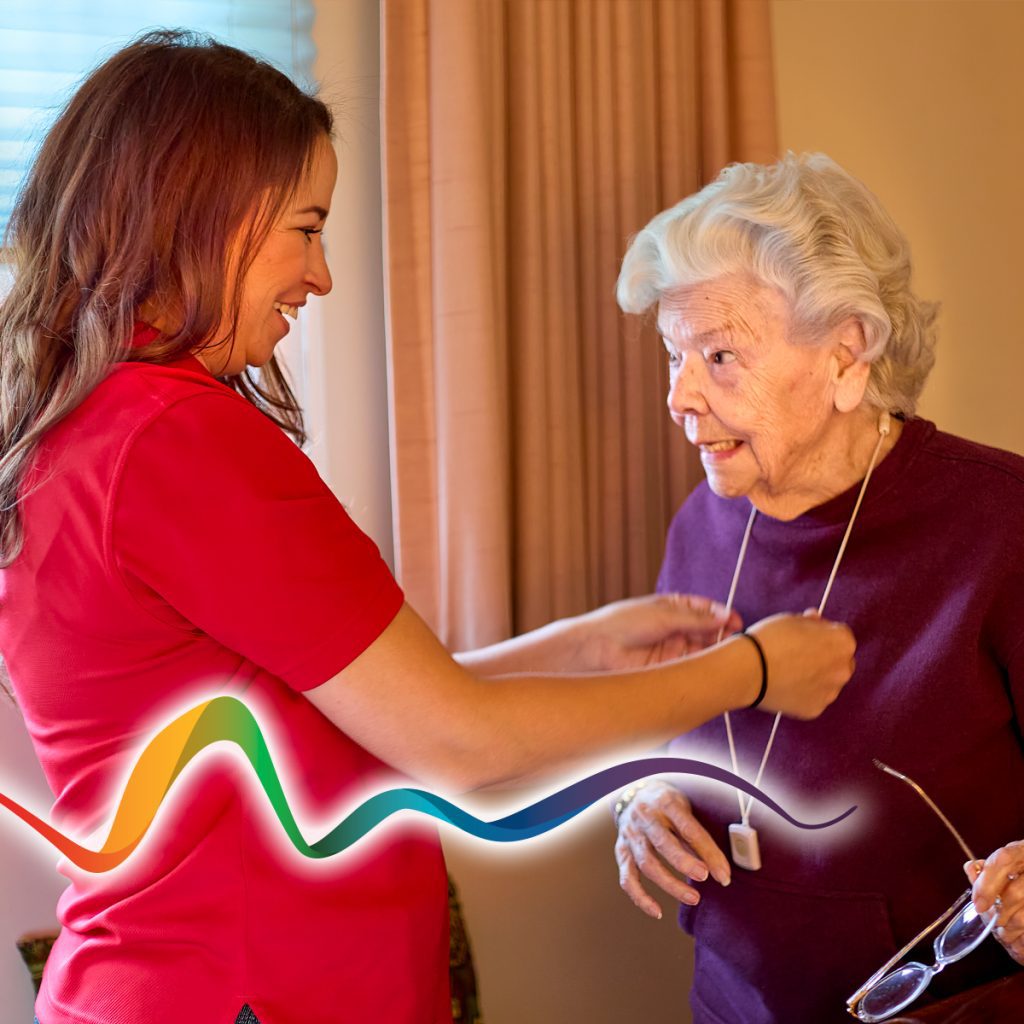Levels of home care play a crucial role as our loved ones age and their needs change, making the choice of care a top priority. For seniors opting to age in place, understanding these varying levels of care is vital for making informed decisions.
Nurses, certified nursing assistants (CNAs), personal care associates (PCAs) or caregivers, play essential roles in maintaining the health, safety, and quality of life for seniors, though their levels of expertise and duties differ.
Nurses: The Medical Experts
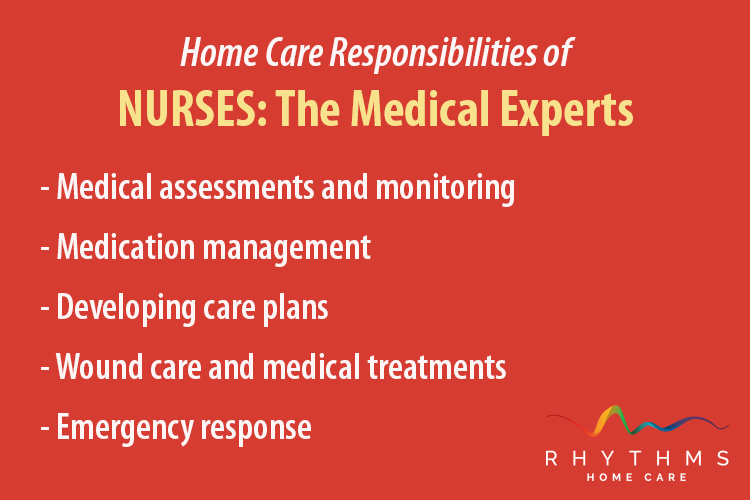
Nurses, who may be registered nurses (RNs) or licensed practical nurses (LPNs), serve as the medical backbone in any senior care environment. Their education and licensure equip them with the knowledge and skills to provide healthcare services.
The following are the responsibilities of nurses:
- Medical assessments and monitoring—Nurses are responsible for assessing a senior’s health on a routine basis. They monitor vital signs, including blood pressure, pulse, and oxygen levels, and evaluate the progression of chronic conditions like diabetes, heart disease, or Alzheimer’s.
- Medication management—One of the most critical roles of nurses is managing medications. They ensure that seniors take the correct medications at the appropriate times, adjusting doses as necessary. RNs and LPNs also administer injections, IV medications, and other complex treatments.
- Developing care plans—Nurses collaborate with physicians and other healthcare providers to create tailored care plans based on a senior’s medical history, current condition, and evolving needs. This involves assessing risk factors, setting health goals, and coordinating with the family and other caregivers.
- Wound care and medical treatments—For seniors who may suffer from ulcers, bedsores, or post-surgical wounds, nurses provide essential wound care and follow-up treatment to promote healing.
- Emergency response—Nurses are trained to handle medical emergencies such as falls, strokes, heart attacks, or sudden changes in health status. Their ability to intervene quickly often makes a critical difference in outcomes.
RNs and LPNs often supervise other care staff in senior homes, ensuring that care plans are followed and that all medical needs are met.
CNA Duties in Home Care: Essential Support for Seniors Aging at Home
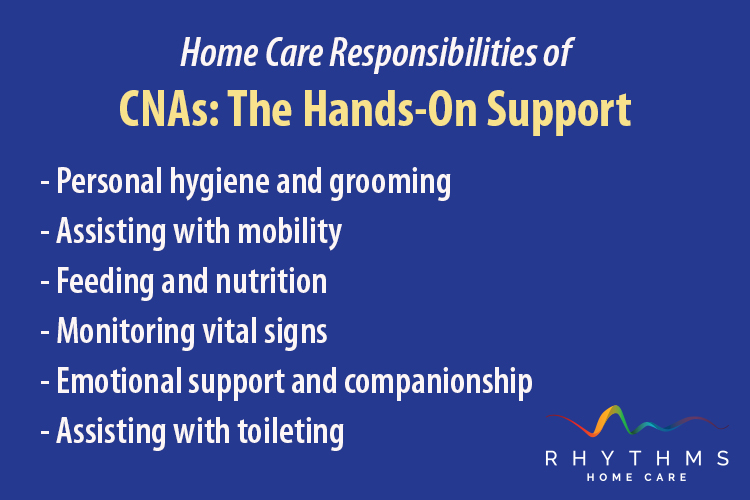
Certified Nursing Assistants (CNAs) play a vital role in quality home care for seniors, providing the bulk of direct, hands-on support to residents. They serve as the intermediary between nurses and seniors, ensuring that essential daily needs are met. CNAs often find deep job satisfaction through the personal connections they build with seniors, knowing that their care and emotional support make a significant, positive impact on their daily lives.
CNAs are generally responsible for the following:
Personal Hygiene and Grooming
Home care CNAs provide essential assistance with daily personal care tasks that help seniors maintain their health, comfort, and self-esteem. This includes helping with bathing—whether in the shower, tub, or through bed baths for those with limited mobility.
CNAs assist with dressing, ensuring clients wear clean, weather-appropriate clothing while respecting their personal style preferences. They help with grooming tasks such as shaving, hair care, oral hygiene, and nail care.
Mobility Assistance and Fall Prevention
Age-related conditions such as arthritis, osteoporosis, Parkinson’s disease, and general muscle weakness make movement challenging for many seniors. Home care CNAs help clients safely transfer from bed to chairs, assist with walking using appropriate assistive devices like walkers or canes, and provide support during position changes throughout the day.
Fall prevention is a critical focus in home care. CNAs assess the home environment for hazards, ensure proper lighting, keep pathways clear, and provide physical support during all movements.
Meal Preparation, Feeding, and Nutrition Support
In home care settings, CNAs often take on expanded nutrition-related responsibilities. They may prepare meals according to dietary plans, accommodating restrictions related to diabetes, heart disease, kidney disease, or swallowing difficulties.
CNAs assist seniors during meals if they have difficulty feeding themselves due to tremors, weakness, vision problems, or cognitive impairment. Home care CNAs monitor food and fluid intake, observe eating patterns, ensure medications are taken with or without food as prescribed, and report any changes in appetite or difficulty swallowing to the supervising nurse.
For clients requiring specialized feeding methods like tube feeding, CNAs provide this care under proper nursing supervision and training.
Monitoring Vital Signs
While registered nurses interpret medical data and make clinical decisions, home care CNAs serve as the frontline observers, gathering crucial health information during each visit. They routinely check and record vital signs including temperature, pulse rate, respiration rate, and blood pressure. This data helps the care team track trends and identify potential health concerns early.
In the home environment, CNAs also observe and report changes in a client’s condition, such as skin integrity issues, unusual swelling, changes in mental status, pain levels, or difficulties with normal activities.
Because they often see clients multiple times per week, home care CNAs can detect subtle changes that family members might miss, serving as an early warning system for developing health problems.
Medication Reminders
While CNAs cannot administer medications, they play an important role in medication management in home care by providing reminders to clients when it’s time to take their prescribed medications.
They may observe clients taking medications to ensure compliance and report any issues—such as refusal, confusion about medications, or side effects—to the supervising nurse or family members.
Light Housekeeping and Home Management
Home care CNAs typically assist with light housekeeping tasks that directly relate to the client’s care and safety. This may include tidying the client’s immediate living space and changing bed linens. Also, they assist by doing laundry, washing dishes used during the visit, and cleaning bathrooms.
These tasks help maintain a sanitary, safe environment that reduces infection risk and fall hazards.
Emotional Support, Companionship, and Cognitive Engagement
One of the most valuable yet often overlooked duties of home care CNAs is providing emotional support and meaningful companionship. Seniors aging at home, especially those who live alone or whose family members work during the day, may experience profound loneliness and social isolation.
This isolation can lead to depression, anxiety, and even physical health decline.
Toileting Assistance and Incontinence Care
Home care CNAs provide dignified assistance with toileting needs and helping clients get to and from the bathroom safely. They also assist with clothing, and helping with proper hygiene afterward.
For seniors experiencing incontinence, CNAs provide respectful, thorough care. They include changing adult briefs, cleansing the skin to prevent breakdown and infections.
CNAs also monitor bowel and bladder patterns. A CNA will report concerns like constipation, diarrhea, urinary tract infection symptoms, or changes in continence to the nursing supervisor.
Communication and Care Coordination
In home care, CNAs serve as a critical communication link between the senior, family members, and the healthcare team.
They report observations, concerns, and changes to supervising nurses, update care plans, and communicate with family members about how their loved one is doing. This coordination ensures everyone involved in the senior’s care stays informed and aligned.
PCA Treatments in Denver: Enhancing Comfort and Quality of Life for Seniors

Personal Care Assistants (PCAs) and caregivers in Denver provide essential non-medical support that significantly enhances the quality of life for seniors aging at home.
While they do not require the same formal medical training as CNAs or nurses, PCAs play an indispensable role in helping older adults maintain their independence, comfort, and dignity throughout the aging process.
Core responsibilities of PCAs and caregivers in Denver include:
Assistance with Activities of Daily Living (ADLs)
PCAs and caregivers help seniors manage the routine tasks that form the foundation of independent living.
This comprehensive support includes meal preparation tailored to dietary preferences and nutritional needs. Also, they assist with light housekeeping to maintain a clean and safe living environment and laundry services. They will also organize living spaces to prevent clutter and fall hazards.
Medication Supervision and Wellness Monitoring
PCAs and caregivers cannot legally administer medications in Colorado without additional certification. However, they play a crucial role in medication management.
They provide reminders when it’s time to take medications, or help organize pill boxes for the week ahead. They also observe clients taking their prescribed medications to support adherence to treatment plans.
Transportation and Community Connection
For many seniors who have stopped driving due to vision problems, cognitive changes, slow reflexes, or simply the decision to stop navigating busy streets, PCAs provide essential transportation services. They can drive clients to appointments, social activities, and visits with friends and family.
This transportation extends beyond simple point-to-point driving. PCAs accompany seniors inside appointments, and help them navigate unfamiliar buildings. They can also assist with mobility aids, and provide a reassuring presence in medical settings that can feel overwhelming.
Companionship and Emotional Well-being
While medical professionals focus primarily on physical health, PCAs address the equally important emotional and social dimensions of senior wellbeing. Loneliness and social isolation represent significant health risks for older adults. These can contribute to depression, cognitive decline, and even increased mortality rates.
Denver PCAs engage seniors in meaningful conversation, reminisce about the city’s history and changes, discuss current events, and simply provide a friendly, consistent presence.
Health Monitoring and Communication
PCAs are frequently present in the home so it positions them as valuable observers of subtle health changes. They notice when a senior seems more tired than usual, when confusion increases, when appetite decreases, or when mobility becomes more limited.
They observe skin changes, new bruising that might indicate falls, or differences in grooming habits that could signal depression.
Supporting Independence and Dignity
A fundamental aspect of PCA care involves supporting seniors’ autonomy and personal dignity. Rather than taking over tasks completely, skilled PCAs encourage seniors to do what they can independently, stepping in only when needed. This approach maintains the senior’s skills, confidence, and sense of purpose.
PCA/Caregivers are a good choice for seniors who require minimal medical care but still benefit from assistance with ADLs and maintaining social connections.
Selecting The Right Senior Home Care Level For Your Loved One
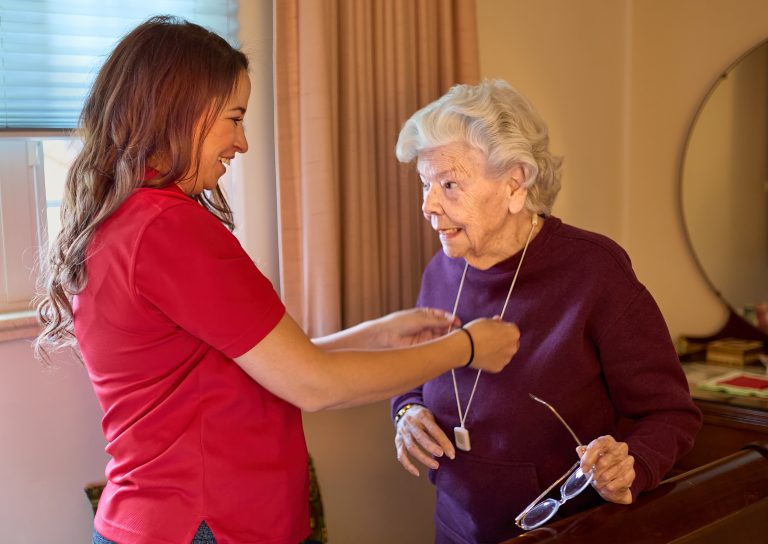
Understanding the unique roles and qualifications of these professionals ensures that seniors receive the best care suited to their needs. By selecting the appropriate level of care, you can help improve their quality of life, maintain their dignity, and ensure their safety as they age in place.
Contact Rhythms Home Care
Serving since 1995, our quality and longevity is unmatched. Contact Rhythms Home Care today for more information about our life-enhancing services.


